Glimpses into Hell - Part 1
Socialism in Cuba
Badlands Media will always put out our content for free, but you can support us by becoming a paid subscriber to this newsletter. Help our collective of citizen journalists take back the narrative from the MSM. We are the news now.
The difference between the communist system and the capitalist one is that both kick you in the ass, but in the communist one they kick you and you have to applaud, while in the capitalist one, they kick you and you can scream. I came here to scream.
— Reinaldo Arenas, Antes Que Anochezca
It’s easy to understand why some people are emotionally drawn to the ideals of communism, socialism, or what we perceive as the progressive intentions of "the left." These systems at least appear to draw their fundamental motivations from a place of compassion.
Today, well-meaning young Americans see socialism as a chic new system, promising equality and fairness. These are admirable things to want for the world, but this game is not new; it's more than 100 years old, and whether it's the rigid, murderous version of socialism put in place by the Soviet Union, or today's nightmare scenarios in Venezuela, Cuba, Nicaragua, Zimbabwe, and North Korea, it's an idea that has never delivered equality, more opportunity, or better lives.
To me, there’s nothing wrong with wanting basic needs provided for everyone, though some conservatives would disagree. The real reason we can't have nice things isn't that these economic systems don’t allow for it; it’s because some of the 3-5% of the population who exhibit sociopathic tendencies have long exploited the compassion that is present in most human beings.
In short, all the good intentions in the world will equate to nothing when there are madmen at the wheel.
Another glaring problem with this seemingly everlasting argument is that young people, myself included, tend to know very little about American history, and in particular, the history of the left. How would we know? It feels eerily by design that we were never really taught about it, so why would we be concerned?
It’s not mind-boggling that some would yearn for something other than an economic system in which businesses thrive not as a result of free enterprise (as originally intended), but rather as a result of money amassed through collusion between the business class and the political class. What I just described is called "crony capitalism," and it can certainly be seen as a negatively-polarized usage of the free market system.
Communism and socialism, despite the utopian light they are often painted in, have historically been the source of untold death and suffering. The global trauma inflicted by ALL of these systems continues to haunt large portions of the human mass psyche. Here in the first world, we cry about crony capitalism (which has caused great suffering in more subtle ways), but we are at least still free to denounce a system that—for the time being—allows us the freedom to have a dissenting opinion.
Like many others, I've pondered potential socialist utopias and how they might function if altruists somehow controlled the state. But it’s hard to envision positive socialist futures when all we have to draw from the past are the nightmares of Nazi Germany, Mao’s China, the Marxism-Leninism of the Soviet Union, and Maduro Venezuela. We can, however, learn much about modern socialism and communism, so long as we are willing, from the nearby island nation of Cuba.
Cuba’s history has always been deeply intertwined with America’s. It was one of the last of the Spanish colonies in the Americas to declare independence, not actually becoming a republic until 1902. Cuba enjoyed real freedom for roughly half a century; many consider this time period to be Cuba's "golden age." By and large, Cuba enjoyed a high standard of living for a long time, so much so that people were actually emigrating from Spain to Cuba.
The 1950s saw Cuba’s first dictatorship by a man named Fugencio Batista (who is rumored to have been backed by members of our own military-industrial complex).
Cuba eventually underwent a "revolution" and was labeled a Soviet satellite state in the late 1950s and early 1960s. What was propped up as a revolution was simply a new brand of dictatorship devouring the old. Around this time, the appearance of Cubans escaping in boats became a common sight off the coast of Florida.
Fidel Castro ruled uncontested for decades and was eventually replaced by the kinder face of Raul Castro, whose reign lasted until Donald Trump was approximately halfway through his time in office. Some had hoped that once the Castro regime ended, everything would revert to the glory days of half a century prior.
Unfortunately, this hope was a naive fairy tale.
The Cuban State is a monolithic system, and it did not just go away once the seat of power was vacated. Now that Cuba has one Miguel Diaz-Canel at the wheel, who rose through the ranks of the communist party and assumed the position as Cuba's head of state, business continues as usual.
Let’s dive into the reality of what has been touted as a ‘very successful socialist experiment.’
Very little exists outside of the state in Cuba, especially in the business sector. There’s a little bit of free enterprise here and there—some sole proprietors and Air BnBs—but aside from that, everything else is run by the state, forcing Cubans to make their money abroad. Cubans do not have their own private checking accounts, and most of the business has been nationalized. In the words of a Cuban immigrant:
“The image you have of North Korea is not far off from the state of Cuba.”
A young Cuban-American girl recently took to TikTok and shared her personal experience living in Cuba.
She claimed that there are no coffins and that when somebody dies in Cuba, they wrap them in a sheet, take note, and then leave the body to whomever they can find to claim it. In some cases, bodies would simply be tossed into backyards and left to decompose naturally in the Caribbean heat. She claims that electricity and water are cut as soon as the sun goes down each night and that if you dare to speak ill of the Communist party, you run the risk of becoming a desaparecido (a missing person by way of political suppression).
Despite all that looming danger, the people have finally reached a boiling point and are actively protesting against their failed government.
How did these protests start?
According to Cuban American author and entrepreneur Antonio Garcia-Martinez, the whole thing began when a bunch of disgruntled citizens decided to start yelling at a Communist Party headquarters. The protestors were apparently chanting pro-freedom sentiments and criticizing the state while waving American flags.
According to actual Cuban citizens, there are a multitude of reasons for the current public uprising, but the mainstream media would have us believe the unrest is solely due to the people's desire for better access to COVID pokes (industrial strength spin).
Cuba has had a pretty rough economic situation for a long time, but the human rights violations were what pushed the general public over the edge. Despite their often-praised healthcare system, poor access to medical treatment has been a serious issue for the Cuban people.
The people of Cuba are starting to mobilize for the first time in decades; the last time there were coordinated major demonstrations like this was nearly 30 years ago, in 1994. When videos of the original protest began surfacing across the internet, others were inspired to take action. It must have dawned on the state that allowing the citizens to continue having access to the internet was going to be a problem, so they did what any single-party dictatorship worth its salt would do. They cut the internet, creating what, in military jargon, is called a "communications blackout."
Sounds shocking, right?
Consider this: It wasn’t actually until about 2008 that Cubans were even allowed to own cell phones; in fact, you could go to jail just for having one in your possession.
Eventually, smartphones were permitted, but the internet works a little differently in Cuba. The kind of connection we enjoy here in America doesn't really exist in Cuba; there are no private internet providers, and the state has the monopoly. To connect to the internet, you can either go to these public access points (which are usually expensive and have poor connection quality) or buy the popular but illegal el Paquete, which is the equivalent of putting a week's worth of news, music, videos, and so on USB drives and selling them.
In essence, it’s like viewing a tiny, curated portion of the internet without actually being online.
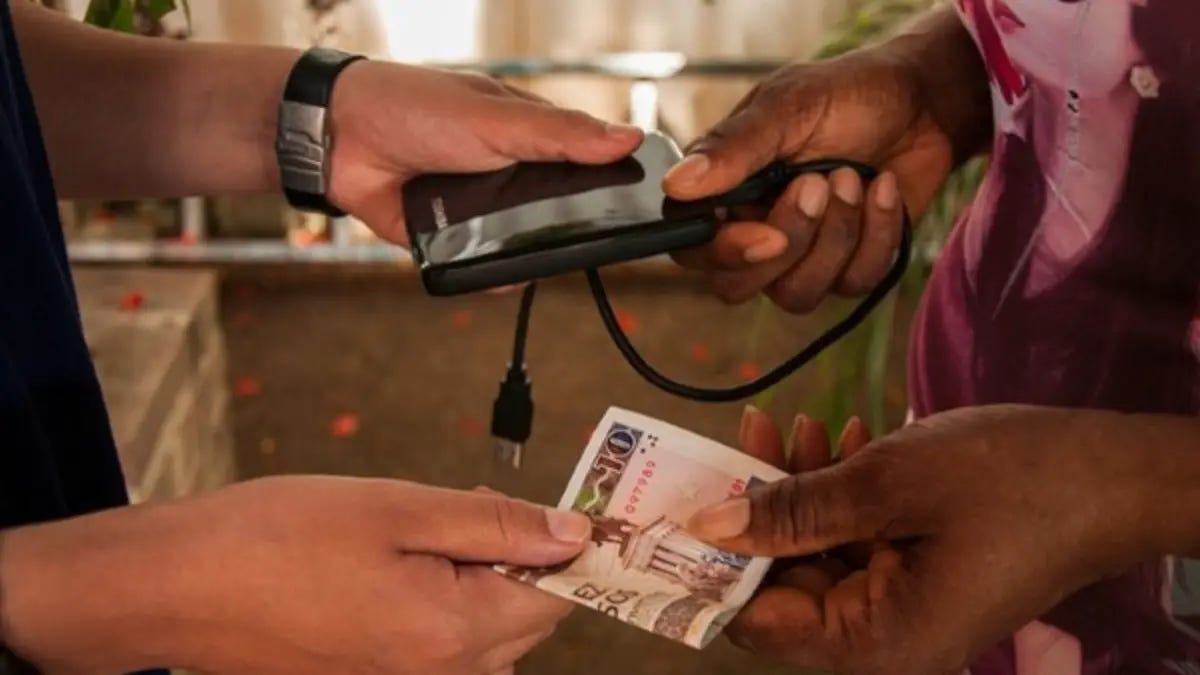
This will cost you 5 CUC (Cuban convertible peso), which in Cuba’s economy takes up a big chunk of the average citizen’s weekly earnings.
Back to the protests, which seemed to pop up, get heated, and then disappear just as suddenly as they came, at least from our first-world perspective. The truth is that the protests are still ongoing; our media has simply stopped reporting on them.
Another factor that had a major dampening effect was the state's starting to really crack down on the protestors, making arrests and even firing people from their jobs. Is any of this starting to sound familiar? On top of all that, the regime has the ability to just shut off the internet, one of the benefits of having everything centralized and controlled by the state.
Then you have BLM, one of several Marxist proxy armies, unironically blasting the United States for what's happening in Cuba while completely ignoring the failed communist state they seem to love so much. Lest there be any doubt remaining that the Black Lives Matter crew has nothing to do with actual racial justice in America, look no further than their reaction to Cuba’s protests.
The group put out a statement, not to condemn the authoritarian regime in Cuba for violently suppressing its people but to berate the United States for its long-standing sanctions on the Communist state.
“Black Lives Matter condemns the U.S. federal government’s inhumane treatment of Cubans, and urges it to immediately lift the economic embargo.
This cruel and inhumane policy, instituted with the explicit intention of destabilizing the country and undermining Cubans’ right to choose their own government, is at the heart of Cuba’s current crisis.” — BLM Statement
The statement is, of course, exactly backward. The US sanctions Cuba precisely because its Communist dictators prevent the Cuban people from having "the right to choose their own government."
Reporter and commentator Nicole Hannah-Jones, who authored the 1619 project and is a staff writer at the New York Times, claims that "equality in Cuba is because of socialism." Cuban American Antonio Garcia-Martinez laughs at this statement and quips, "Sure, if you make everyone poor, then indeed inequality would be lower."
But even the Washington Post recently ran an article about the plight of blacks in Cuba. Nicole Hannah-Jones and BLM are by far not the only ones singing the praises of the Cuban government for their own personal benefits. In addition, the likes of Maxine Waters and Sheila Jackson-Lee have previously praised the Castro regime.
The usual pop-culture politicians like Bernie Sanders and AOC hail Cuba as a highly successful example of the "socialist experiment," citing their amazing healthcare system and literacy program. Apparently the healthcare system isn't as great as touted, since that is one of the many things the protestors are criticizing, and as far as the literacy program being a great socialist achievement, Antonio Garcia-Martinez claims that Cuba has had a higher literacy rate since well before the revolution.
The rhetoric coming from BLM and the left is that Trump's trade embargo is the sole cause for all of the troubles in Cuba; this is actually just simple propaganda, but let's go there for a moment.
According to Antonio Garcia-Martinez, virtually none of the protesters on the ground have mentioned or seem to care about the embargo at all. Cuba can trade freely with the rest of the world, and avoiding trade with the US isn't considered some new, catastrophic thing; besides a short period during the Obama era, this has been standard Cuban-US relations for decades.
Of course, you see the shameless partisan hacks in DC virtue signaling and "standing in solidarity" with the Cuban people by acting to remove the embargo, an embargo that was placed specifically to hinder the very same communist party the Cuban people are now actively protesting against.
If you wanted to actually "stand in solidarity" and not just stand on the backs of silenced and oppressed people, then you would try to bring more awareness to the human rights violations instead of warping a tragedy to fit your agenda. While Cuban Americans may claim that changing the embargo isn't going to do very much for the people, it would, however, greatly benefit the state.
How long can these first-world pundits hold up Cuba as a shining example of a socialist experiment when (for the time being) videos of Cubans being beaten and arrested in the streets for dissent are available?
Hundreds of Cubans are facing charges of inciting unrest; their families are worried about trials being held without due process; and a lot of these protestors (mostly young people) cannot get independent defense lawyers. The Communist Party has released Rapid Reaction Brigades to police and squash all dissent, and while these brigades are carrying out actual government-sanctioned police brutality, BLM doesn't bat an eye because it's such a ‘successful socialist experiment.’
Suffice it to say that the Cuban government is not the biggest advocate for open communication. In a nation where the government limits internet access to control the flow of information, there is no telling how much deeper the abuses run.
Cuban dictator Miguel Diaz-Canel openly called for violence when instructing his followers that "the order to combat has been given. Revolutionaries need to be on the streets."
Should the pro-freedom protesters escape a beating by unruly communists, they certainly cannot expect fair treatment, competent media exposure, and a trial by jury once they have been arrested. Yet they do what they can to make their voices heard just the same.
Many Americans believe the pro-freedom uprising in Cuba is a microcosm of everything we see happening in America today. As politicians and bureaucrats seek to tighten their grip on power, the everyday Joe Schmoe is stepping up to make his voice heard. Pockets of concerned citizens are fighting back against the onslaught of socialism as it covertly wraps its slimy tendrils around what’s left of the foundations of our constitutional republic.
What can we do to help, both short-term and long-term, outside of self-aggrandizing social media posts?
There are documents circulating on the internet that list the names and details surrounding the growing number of Desaparecidos, keeping the data centralized and alive. Continuing to share this sort of content keeps the reality fresh in the minds of those who care and is another example of how internet access has shaken things up in Cuba.
Ron DeSantis, the Governor of Florida, has written an open letter to the Biden Administration saying that the federal government should help restore internet access to the people of Cuba. FCC Commissioner Brenden Carr echoed this sentiment and explained how we have the technology to easily override this.
The internet, open communication, and freedom of speech are the most disruptive things that exist in a single-party dictatorship, so I believe enabling those three things is key.
Loon LLC, which exists under Sergey Brin’s big-tech umbrella corporation Alphabet, once used balloons to get wifi to Puerto Rico when they were going through Hurricane Maria. It sounds wacky, but a lot of different private companies have R&D teams working on new ways to transmit wifi over long distances, including Elon Musk's Starlink.
Facebook was working on a way to use satellites to beam internet all across the planet, but these supposedly ‘woke’ tech companies would have to actually choose to do this, which will hopefully happen as soon as it benefits them to do so. These are all things that will help, but will require the compliance of big business and big tech.
We can, at the very least, continue to apply pressure and keep the fight alive by writing letters and joining demonstrations here on US soil to raise awareness.
[Authors Note: since the first draft of this essay, Musk has made promises to both Iran and Cuba regarding internet access.]
Why Should Americans even care?
What is happening in Cuba is a symptom of a push for centralized global governance. If Americans care about freedom and democracy at home and abroad, then they should care about the 10 million people living under the yolk of Communism just 90 miles away from US territory. There’s a huge Cuban exile community in Florida that takes voting far more seriously than your average young American, and from a strictly-political standpoint, people in power should want to help for that reason alone.
The main, and most obvious reason for wanting to help the Cuban people is simply because it is the right thing to do. I personally cannot imagine an argument where anyone could successfully defend why the Cuban people shouldn't have free access to the internet and the freedom of open communication with the rest of the world.
The perfectly-timed flood of immigrants across the southern border into blue states and federally funded sanctuary cities, creating an easily launderable multi-billion dollar racket, is all well and good, yet the DHS director under Joe Biden recently decided that he didn’t want Cubans coming over.
It’s as if they’re saying, ‘Oh, we only want these immigrants over here that benefit us, not those immigrants.’
Despite the poor treatment from the current administration, the Cuban people still wave the American flag and call for freedom.
Regardless of whoever is in office at the time, our flag stands for what America could and should be. To those who have been conditioned to hate the country they live in and are the stewards of, I invite you to try living in Cuba for a while.
Badlands Media articles and features represent the opinions of the contributing authors and do not necessarily represent the views of Badlands Media itself.
If you enjoyed this contribution to Badlands Media, please consider checking out more of my work for free at Underground Newswire.


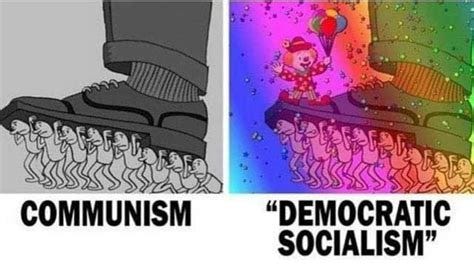
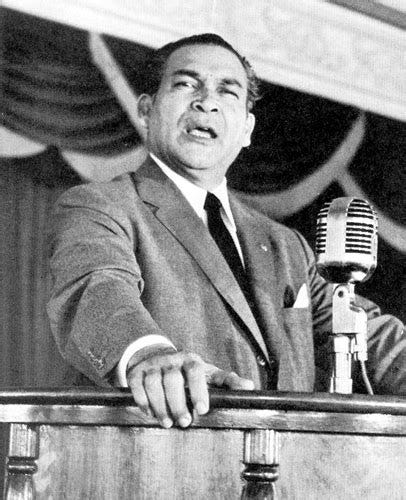

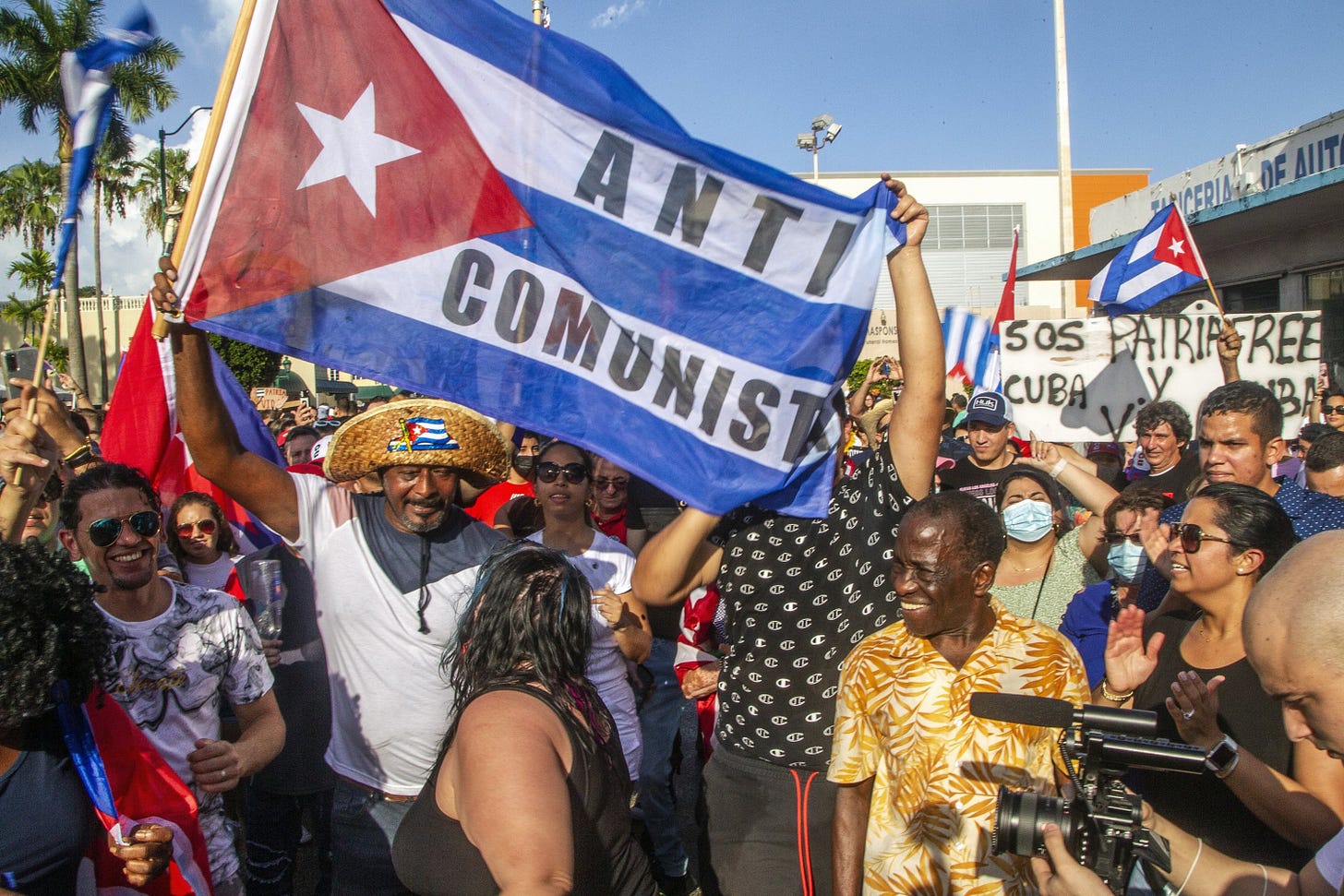
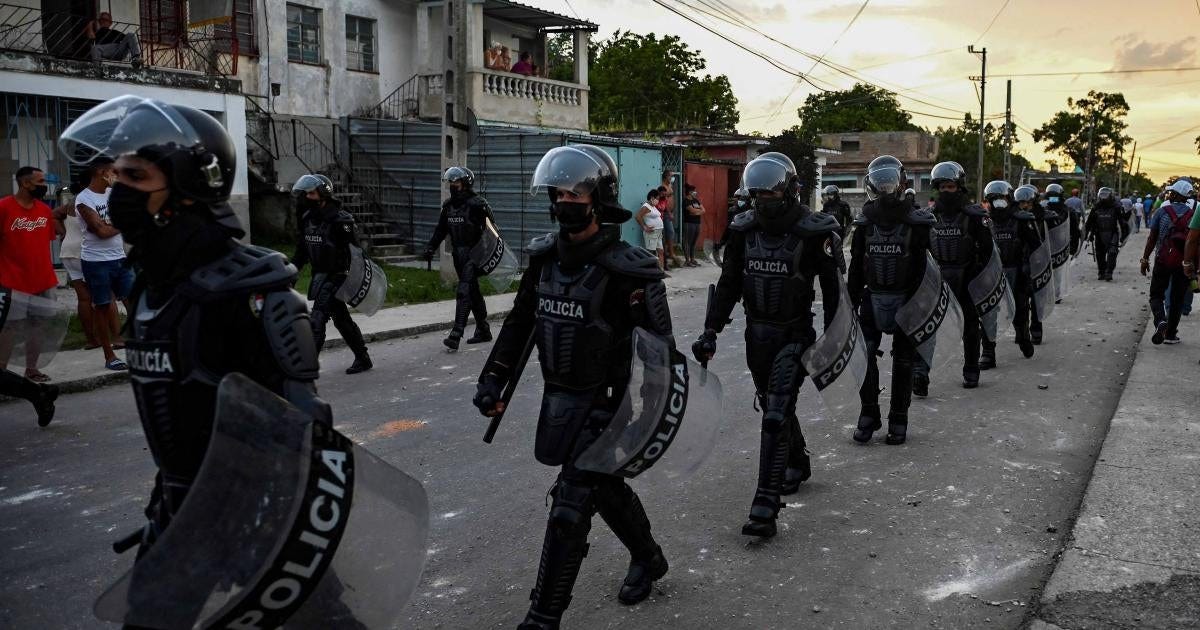
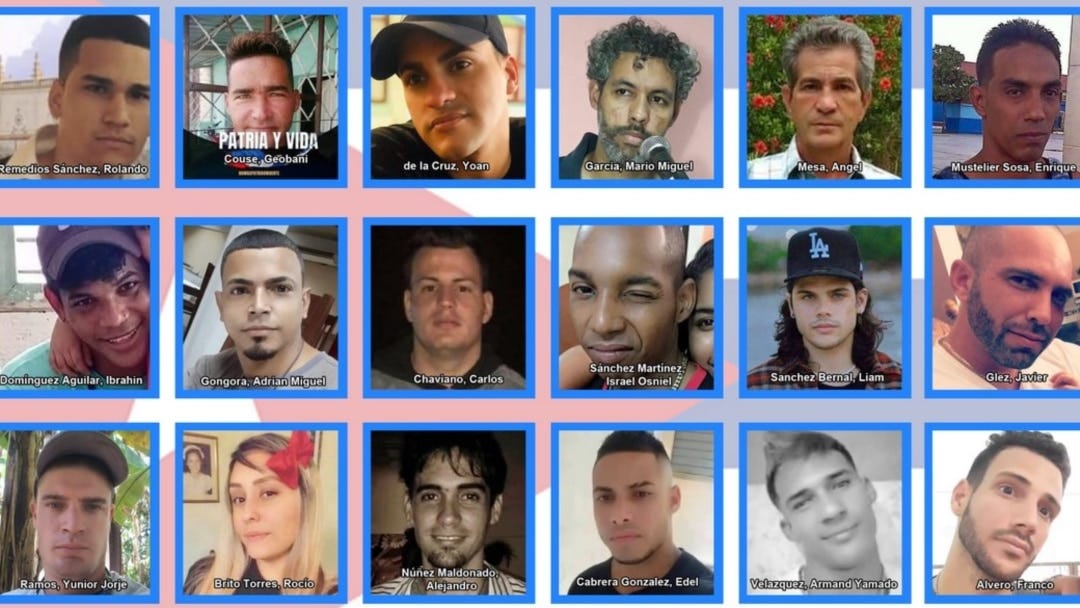
I did not know there were major uprisings happening in Cuba. That’s interesting. Seems like the whole world is rising up. A new day is dawning!
"Regardless of whoever is in office at the time, our flag stands for what America could and should be. To those who have been conditioned to hate the country they live in and are the stewards of, I invite you to try living in Cuba for a while." Well said! Real history needs to be taught to all citizens of this fine country!